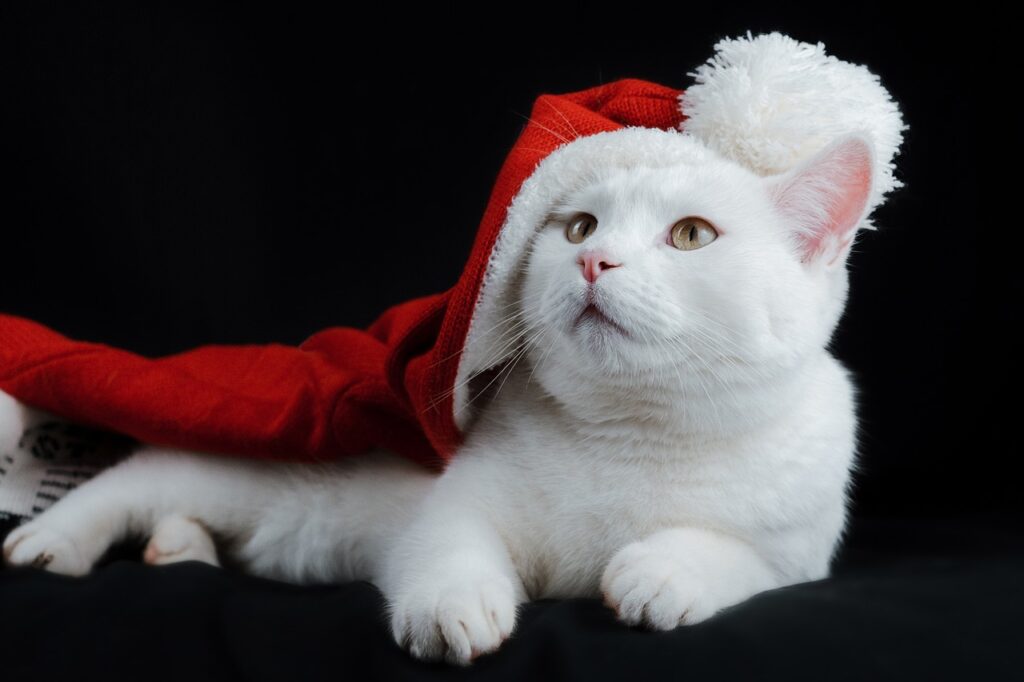Can Cats Eat Ginger? – No, They can’t
Ginger is a root that’s often celebrated for its spicy flavor and health benefits in humans; however, it’s not the same story for our feline friends. While a tiny amount isn’t likely to be harmful, ginger can cause discomfort and digestive issues in cats, so it’s best to err on the side of caution and avoid offering it to your pet. Cats’ digestive systems are different from ours, and what is healthy for humans may not be safe for them.
Can Kittens Eat Ginger?
No, it’s even more important to keep ginger away from kittens. Their digestive systems are more sensitive and still developing. Even small amounts of ginger can induce more severe reactions in kittens compared to adult cats. If you’re tempted to treat your kitten with human foods, it’s paramount to check if those items are safe.
Things to consider when feeding ginger to kittens?
Given kittens’ small size and their developing internal systems, anything they ingest can significantly impact their health. Ginger could potentially stir up gastric issues or an allergic reaction. Hence, it’s wise to stick to cat-specific foods that are formulated to meet the nutritional needs of growing kittens.
Nutritional Benefits of Ginger for Cats – Why Cats can’t have Ginger
1
While ginger is known for its anti-inflammatory properties and digestive aid for humans, cats process foods differently, and these benefits do not transfer effectively to feline physiology.
2
Ginger contains compounds like gingerol, which may upset a cat’s stomach. Instead of providing nutritional benefits, it could lead to discomfort and health issues for your pet.
3
There is no nutritional requirement for ginger in a cat’s diet. Cats are obligate carnivores, which means they derive their nutrition primarily from meat. Introducing ginger into the diet does not align with their dietary needs.
4
Even used as a spice, ginger does not appeal to the feline palate. Cats tend to prefer flavors that are found within their natural dietary spectrum, which mainly consists of proteins.
5
There is a potential for ginger to cause an adverse reaction in some cats. In contrast to potential benefits, this risk is too significant to warrant its use.
Potential Allergies: Can Cats Be Allergic to Ginger?
Yes, cats can develop allergies to a range of substances, including foods like ginger, though this is fairly uncommon.
Symptoms of Ginger Allergies in Cats
- Gastrointestinal Distress : Look for signs of an upset stomach such as vomiting or diarrhea if your cat accidentally ingests ginger.
- Skin Irritation : Observe any excessive scratching or signs of irritation on your cat’s skin, as this could point to an allergic reaction.
- Change in behavior : If your cat is acting unusually sluggish or restless after consuming ginger, it could be indicative of discomfort or an allergic reaction.
What to Do If Your Cat Shows Symptoms?
- Immediate Cessation: Stop feeding your cat ginger immediately if you observe any adverse reactions.
- Veterinary Consultation: It’s crucial to consult your veterinarian for advice and potential treatment if your cat displays symptoms of an allergy.
- Dietary Review: Work with your vet to evaluate your cat’s diet and eliminate any potential allergens.
Recommended Amount: How Much Ginger Can a Cat Consume?
It is not recommended to deliberately feed ginger to cats. If you suspect your cat has eaten ginger by accident, look out for any symptoms of distress, and consult your veterinarian if any concerns arise.
Things to Consider When Feeding Ginger to Cats
Due to the possibility of digestive disturbance and the lack of nutritional necessity, avoid including ginger in your cat’s diet. If your cat has underlying health issues, ginger could potentially exacerbate symptoms.
How to Feed Ginger to Cats: A Quick Guide
Considering the risks associated with ginger for cats, it’s best not to feed it to them at all. Instead, focus on providing balanced feline nutrition that supports their overall health and wellbeing.
Safe Treat Alternative 1
For a ginger-free treat, consider small pieces of cooked chicken or fish which are excellent protein sources and much more suitable for your cat’s dietary requirements.
Safe Treat Alternative 2
Feline-friendly commercial treats are also available that are specifically formulated to be both safe and enjoyable for cats, without any harmful ingredients.
Safe Treat Alternative 3
For a fun homemade option, blend up a puree of cat-safe vegetables like pumpkin or carrots. These can provide added vitamins and fiber to your cat’s diet.
Conclusion
To sum up, ginger does not have a place in a cat’s diet. It’s always important to be aware of the risks certain human foods can pose to our furry friends. Feeding your cat or kitten ginger can result in discomfort, and allergic reactions are a possibility as well. With a plethora of safe and nutritious alternatives available, sticking to cat-friendly foods is the best way to show love and care for your feline companion.

